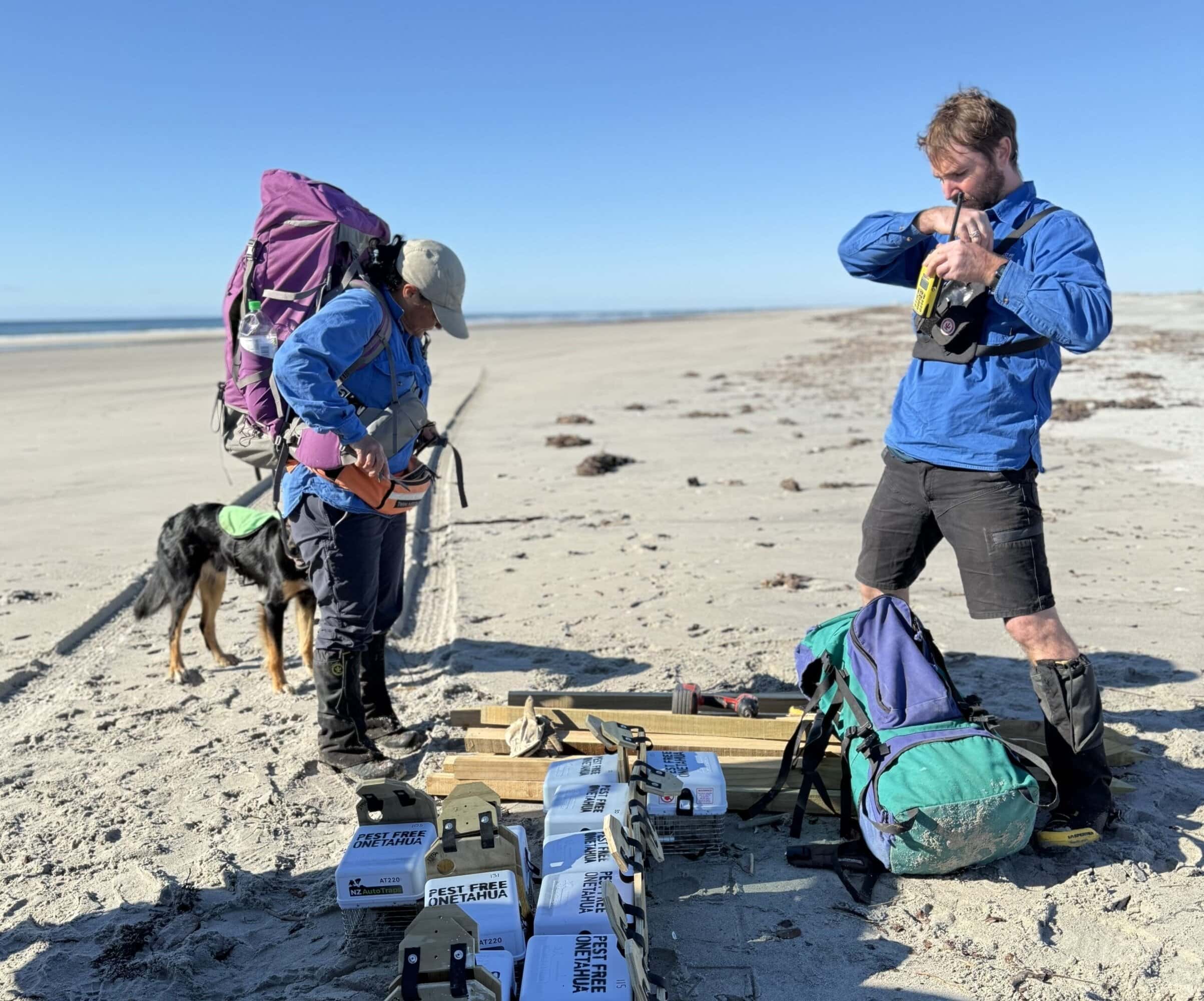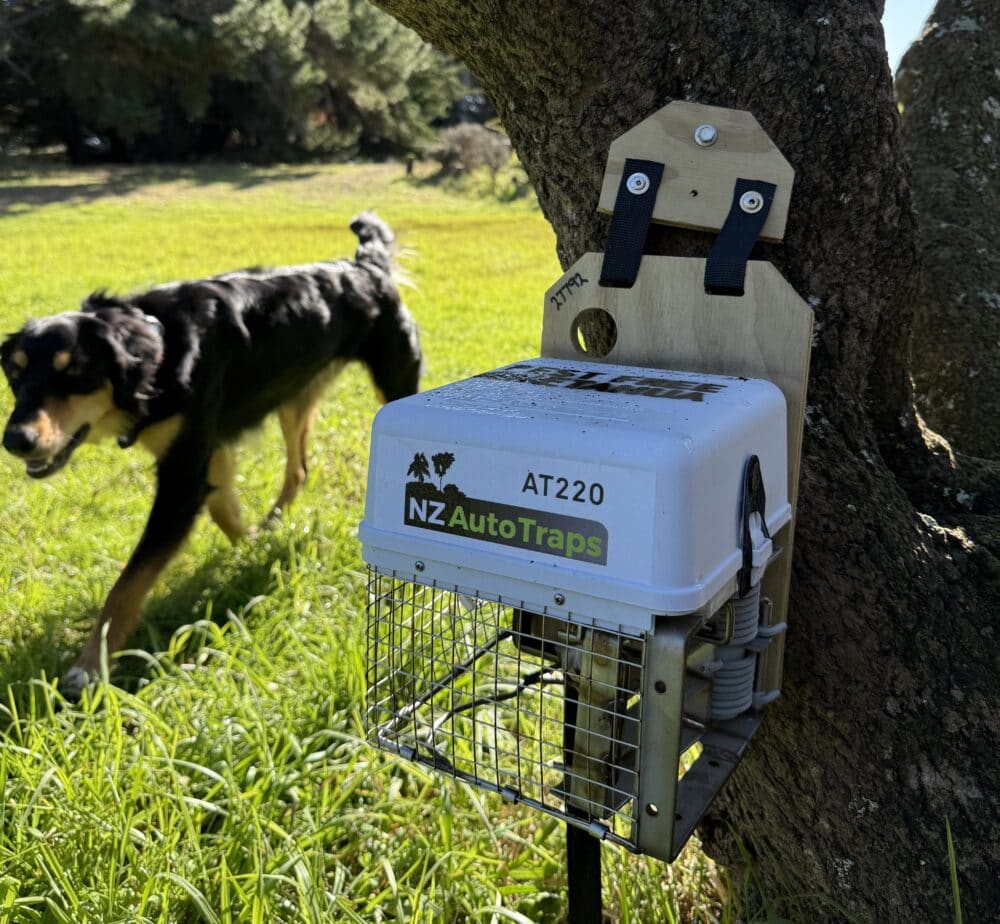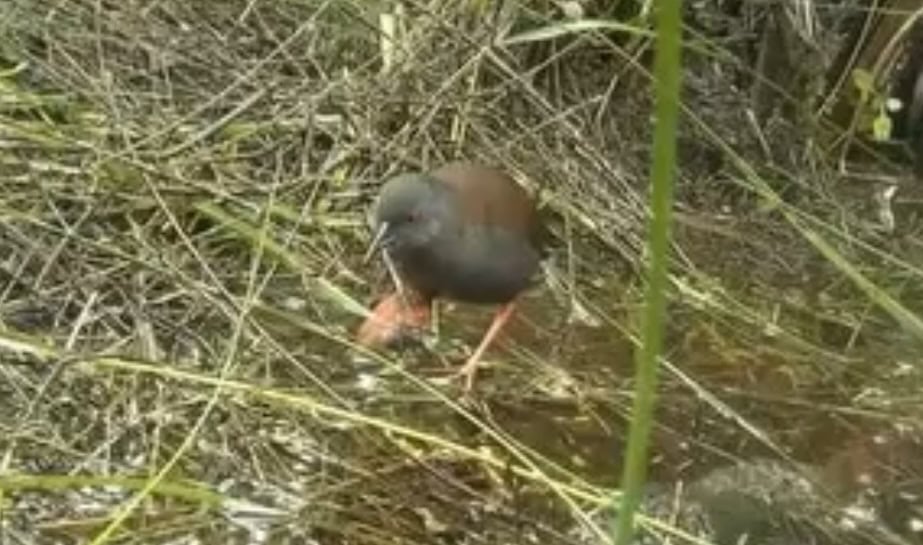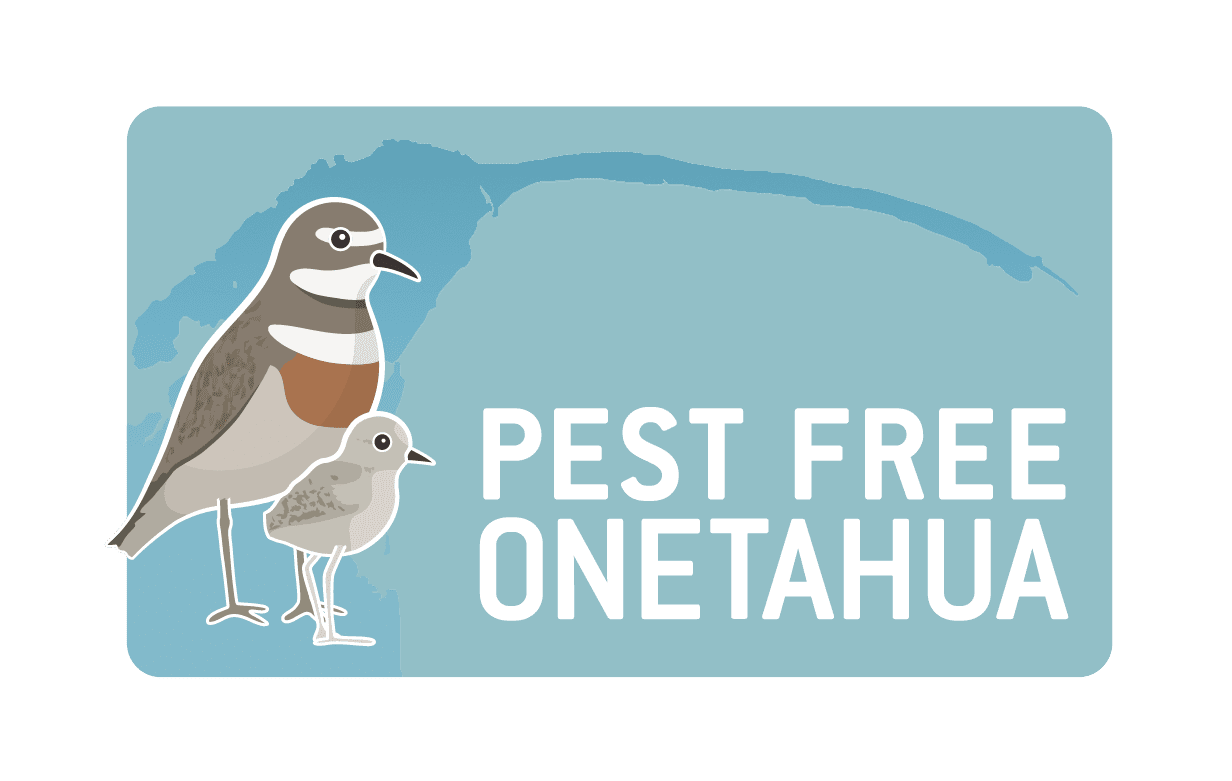
In January, the PFO team began installing the rolling front of pest control at the far tip of Farewell Spit, working steadily down towards the mainland. With 500ha covered, the results are impressive—hundreds of possums and rats have been removed already.
In just the first stages, catches include over 350 possums and 509 rats – and 40 hares (using drone hunting). Every pest removed is starting to protect the Spit’s unique ecology, from nesting shorebirds to rare plants.
Building a Dense Defence
The team’s trap network is growing fast. Another 120 AT220 self-resetting traps (bringing the total to 209) and 56 more DOC200s (now 161 total) have been deployed, alongside 480 bait stations—covering an area of about 500 hectares. These devices are targeting possums and rats around the clock.
A new team member is also making a difference—PFO Project Lead Corey Mosen’s specialist pest control dog, Argos, who’s proving to be an invaluable asset in the field.

Expanding Outward
While the main focus remains on Farewell Spit itself, PFO is also strengthening pest suppression in the surrounding area. New DOC200 traps now stretch strategically along Pakawau Bush Road to Pūponga, creating the beginning of a wider pest suppression network.
Plans are underway for a trapping and monitoring network at Triangle Flat, in collaboration with HealthPost Nature Trust (HPNT). This work could pave the way for other endangered species to be reintroduced—but only if stoats can be eliminated. Over the next year, HPNT will maintain traps in the area until PFO’s rolling front reaches Triangle Flat.
Special Wildlife Moments
Trail cameras recently captured an exciting sight at the end of Farewell Spit—a spotless crake, a rare and secretive wetland bird. PFO and HPNT will be championing this shy species in this year’s Bird of the Year campaign.
Kiwi monitoring is also underway, with acoustic recorders tracking where these iconic birds are calling in the Fossil Point/Old Man Range area. And thanks to DOC funding, 80 hours of feral pig control are planned for the base of the Spit.

Preparing for the Fence
The start of a construction of a predator-proof fence is a major milestone for PFO and HPNT, this will create a long-term barrier to pest re-invasion and allow for native species re-introduction. While wet winter conditions slowed progress, trail cutting for the fence is nearly complete and construction is expected to ramp up this summer.
Why This Matters
Spanning 12,000 hectares from the tip of the Spit through Pākawau Bush to Whanganui Inlet, PFO’s project area is home to rare plants, native birds, and thousands of migratory shorebirds. Onetahua/Farewell Spit is a Ramsar-listed wetland of international significance and a critical stopover for migratory species. But predators threaten this fragile ecosystem.
By removing possums, pigs, deer, stoats, and rats, Pest Free Onetahua is giving native wildlife the best chance to thrive—now and for generations to come.
